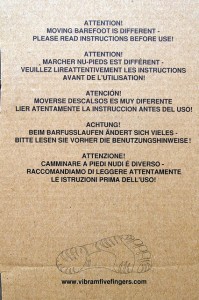For many people, the use and mix of two languages or more is absolutely natural. They are of the opinion that “melange” is the future. If you are growing up in a city like Montreal (English and French) or Miami (English and Spanish) chances are that you are going to replace some words without even noticing it.
The cases I can relate to are all in Miami. Usually, people who were born in Florida to Cuban parents speak Spanish at home and English out of the house. I know now, that for several people I talk to, the use of the words like: “taxes” (impuestos in Spanish), “billes” (facturas or cuentas in Sp.) and “forma” ( planilla or formulario in Sp.) is completely normal. They just took the words taxes, bills and form and added, as they considered necessary, one or two letters to make it sound Spanish. In some cases, the new word could mean something completely different for a Spanish – speaker out of Miami. Ex: “form” became “forma”, which is the Spanish word for shape.
There are tons of Spanglish examples that leave me astonished but for most of the people I talk to it seems to be fine if the communication is not affected, if the other person gets the sense of it. I cannot get used to the idea of neglecting the rich Spanish language to form new words with a foreign root. Maybe, I am too conservative.
My husband thinks that the same way the Cubans in Cuba already use English words like baseball, pitcher, catcher and clutch, other words will be introduced as a part of a natural process, the same occurred long time ago when the Latin got divided in Europe, creating the Romance languages.
Every line of this translation has misspellings. I am not sure who volunteers or gets paid to do these translations but if you just use Google Translate you will instantly see the correct orthography of the words.
While travelling in California I was surprised to find street signs with serious misspellings as well. I was not expecting to find a small shop sign in perfect Spanish, but what about official signs?
I am trying to improve my English skills every day through reading and writing in my second language. I see the great importance of it. In the meantime, many others do not seem to believe that improving their second language is a big deal. If they have the basic oral skills they think it is more than enough to survive. I do agree that it will be enough to survive but you would never be able to fully enjoy the language.

